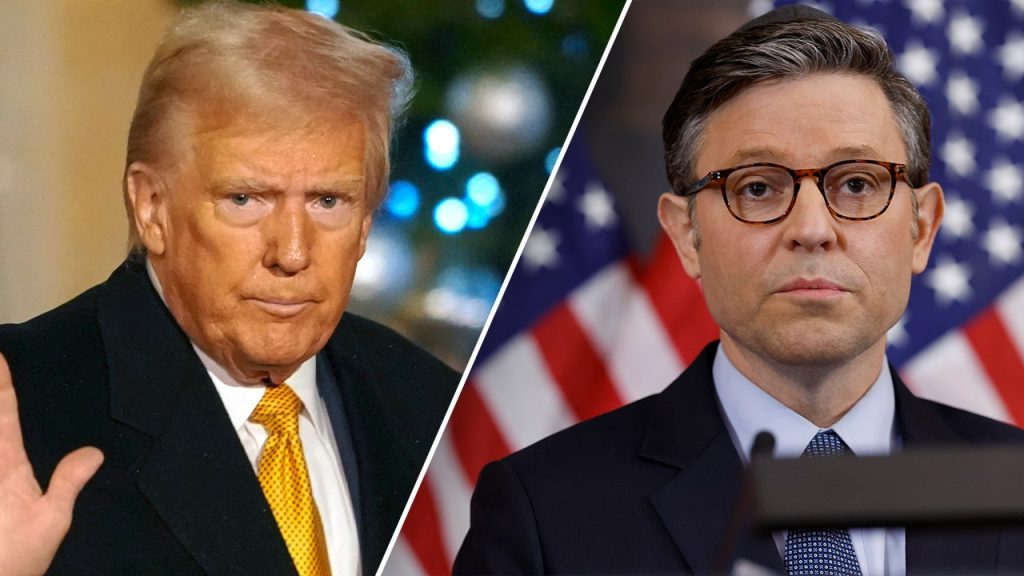The US House of Representatives descended into chaos on Thursday as a Republican-led spending bill designed to avert a looming government shutdown failed spectacularly, exposing deep fissures within the party and delivering a stinging rebuke to President-elect Trump’s nascent leadership. The bill, which needed a simple majority of 218 votes to pass, garnered only 174 affirmative votes, with a significant contingent of 38 Republicans joining Democrats in opposition. This defeat not only underscored the challenges Trump faces in uniting his party but also highlighted the precarious state of fiscal politics in Washington.
The proposed legislation, hastily assembled after an earlier bipartisan deal collapsed, aimed to fund the government through March and suspend the debt ceiling for two years. This two-year suspension became a major sticking point, drawing fire from fiscal conservatives within the Republican ranks who viewed it as a blank check for further government spending. Their concerns were amplified by the nation’s already precarious financial position, burdened by a $36 trillion debt and a projected $1.8 trillion deficit for 2024. These conservatives argued that a continuing resolution, essentially maintaining current spending levels, simply postponed a necessary reckoning with the nation’s unsustainable fiscal trajectory.
Rep. Chip Roy of Texas, a prominent voice among the dissenting Republicans, delivered a scathing critique of the bill on the House floor, accusing his colleagues of abandoning their commitment to fiscal responsibility. Roy, who had also opposed the initial bipartisan spending bill, argued that the proposed legislation would add $5 trillion to the national debt, a figure he deemed unacceptable. His impassioned speech exposed the growing rift within the Republican party, pitting those prioritizing immediate government funding against those demanding greater fiscal restraint. Roy’s direct challenge to Trump’s influence further underscored the internal struggle for control within the GOP.
The bill’s failure also marked a significant setback for President-elect Trump, who had personally intervened in the negotiations, pushing for the inclusion of the debt ceiling suspension. Trump’s efforts to sway House Speaker Mike Johnson and other Republican leaders ultimately backfired, demonstrating the limits of his political capital even before formally taking office. The rebellion within his own party serves as an early warning sign of the potential difficulties Trump may encounter in advancing his agenda through a divided Congress.
Democrats, meanwhile, unified in their opposition to the revised spending bill, seizing the opportunity to criticize both Trump and Elon Musk for their perceived roles in derailing the initial bipartisan agreement. Democratic leaders accused Trump and Musk of injecting unnecessary chaos into the process and prioritizing political maneuvering over responsible governance. Their vocal opposition, punctuated by chants of “hell no” on the House floor, reflected their frustration with the Republican Party’s internal divisions and the perceived disregard for bipartisan cooperation.
The immediate aftermath of the vote saw Speaker Johnson scrambling to salvage the situation, engaging in closed-door meetings with dissenting Republicans in an attempt to secure their support for another vote. Johnson placed the blame squarely on Democrats, accusing them of obstructing critical funding for farmers, ranchers, and disaster relief by opposing the bill solely due to the debt ceiling provision. He reminded the House that Democrats had previously criticized Republicans for politicizing the debt ceiling, highlighting the perceived hypocrisy of their current stance. The failure of the spending bill leaves the government teetering on the brink of a shutdown, with the future uncertain and the political landscape fraught with tension.

